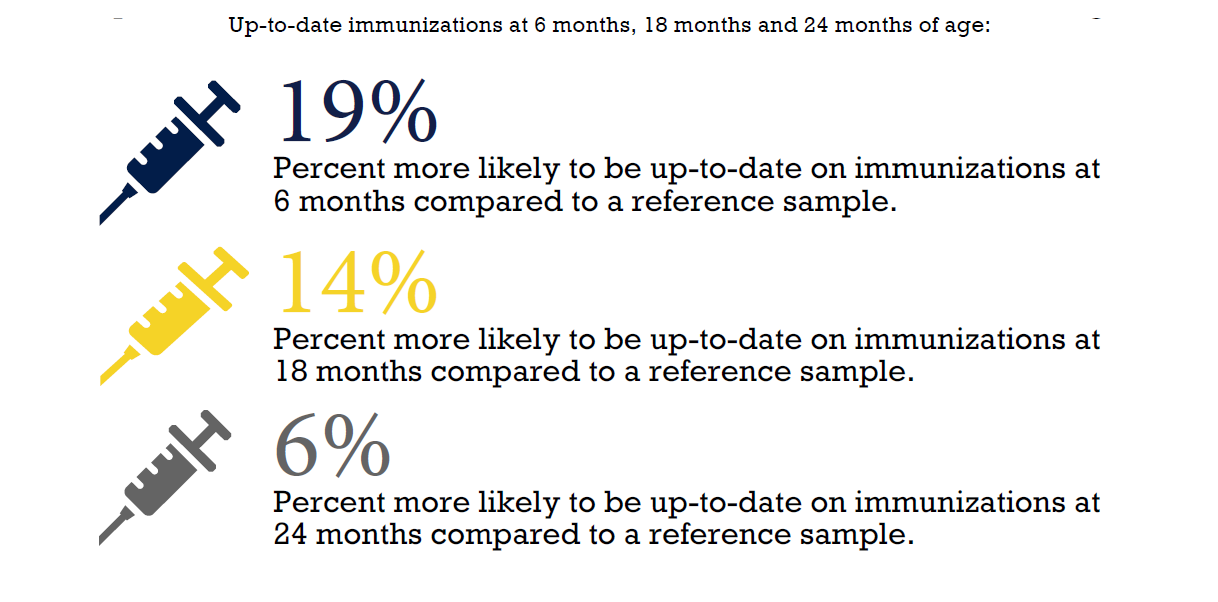National Infant Immunization Week marks the importance of protecting infants from diseases that are preventable by vaccine. Immunizing your children at a young age makes you an active participant in the health, safety, and wellness of a community that extends further than you might think.
“Vaccination is one of the best ways parents can protect infants and children from potentially harmful diseases. Our Nurse-Family Partnership program provides first-time mothers with the education and support needed to make informed decisions about immunizations. Conversations often include the benefits, risks, side effects, and scheduling. A key finding is that Nurse-Family Partnership children were more likely to be up-to-date on immunizations.”

How Vaccines Work
The practice of vaccinating to prevent occurrences of terrible diseases has become a vital piece of modern healthcare. The process involves patients being injected with a weakened strain of a particular virus – weak enough that it does no harm to the body, but strong enough to cause your immune system to produce antibodies that can fight off the illness. Immunizations essentially “condition” your body against a large spectrum of sicknesses, with some of the most common preventing mumps, measles, rubella, smallpox, and polio.
The eradication of the smallpox virus worldwide in 1980 not only marked a victory for modern medicine, but a transformation in public perception of the virus — our ability to think of smallpox as an “old-fashioned” disease is entirely thanks to vaccinations.
Immunizing infants in particular is especially important because certain diseases that may not typically be life-threatening to adults can sometimes be fatal to babies and young children. The science behind vaccinations is an extension of our concern as parents, and a means of protection and safety — first and foremost for our children, and secondly for the larger population. Any myths that vaccines do otherwise are simply that; myths.
Protected Together: Making the Decision to Vaccinate
How far do you think the impact of the decision to vaccinate your children goes? The Center for Disease Control and Prevention (CDC) measures achievements in modern medicine by taking into account the public health of the entire country. One outbreak can tip the national scale.
Rubella, also called German measles, is an example of a contagious disease with an incidence rate that was lowered by introducing the MMR vaccine. While contracting rubella can cause a distinctive skin rash and enlarged lymph nodes in its patients, it provides a more serious threat to pregnant women and their babies. A rubella infection during the first trimester of pregnancy has been linked to birth defects, premature delivery, and fatalities for both mother and baby.
National Infant Immunization Week
During National Infant Immunization Week, we focus on the important role that vaccines play in modern medicine. Infant immunization allows our children to resist unnecessary exposure to the unpleasant and potentially life-threatening side effects that come with outdated diseases.
Proper immunization is a safety practice with the ability to prevent diseases and symptoms that the healthcare industry has long since surpassed.
If you want to learn more about infant immunization, talk with your doctor or visit the CDC online.
We also invite first-time moms to learn more about our Nurse-Family Partnership Program, designed to help families create a better future for themselves and their baby.





